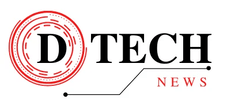Embracing Real-World Research: The Key to Academic Science’s Success in the AI Era 🚀
In today’s rapidly advancing digital age, the confluence of artificial intelligence (AI) and academic science marks a transformative epoch. As AI technologies begin to permeate every aspect of scientific research, the emphasis shifts towards real-world applications. This fusion is not merely an evolutionary step for academia; it is a crucial pivot ensuring relevance and success in the coming decades.
Bridging the Gap Between AI and Academic Science 🧠🔬
Academic institutions have long served as the incubators of theoretical knowledge. However, in the AI era, there is a palpable shift towards real-world problem-solving. Researchers are now tasked with harnessing the powerful tools offered by AI to tackle pressing societal challenges, ranging from climate change to healthcare innovations.
Traditional models of academic inquiry have primarily focused on theoretical constructs. Yet, AI demands a more applied approach. Integrating AI-driven tools into research not only accelerates data analysis but also expands capabilities for new discoveries that were previously unattainable. The true value lies in employing these AI resources to generate tangible impacts on society.
The Role of Universities in Fostering Innovation 🌍🏫
Universities occupy a pivotal role in this transformative phase. By fostering partnerships with industry leaders, academic institutions can create symbiotic relationships beneficial to both parties. Such collaborations allow universities to incorporate real-world data and challenges into their curricula and research initiatives. This approach provides students and researchers exposure to current industry challenges and the tools necessary to solve them.
Moreover, academic programs are increasingly evolving towards interdisciplinary approaches. Programs merging AI with fields like biology, physics, and social sciences prepare students to effectively apply AI technologies across various domains. This evolution produces a generation of scientists adept not only at theoretical work but also capable of applying their knowledge to real-world scenarios.
Real-World Impact: AI in Action 🌐⚙️
The application of AI in real-world research is already revolutionizing several sectors:
- **Healthcare Innovations**: AI algorithms are transforming diagnostics and patient care, enabling early disease detection and personalized treatment plans.
- **Environmental Solutions**: Researchers utilize AI to model climate change scenarios, helping policymakers make informed decisions for sustainable development.
- **Agricultural Advances**: AI-driven technologies optimize crop yields, reduce waste, and enhance global food security.
By aligning academic pursuits with practical outcomes, the positive ripple effects of AI across various industries are profound and far-reaching.
The Future is Collaborative 💡🤝
The future of academic science in the AI era depends on collaboration and practical application. With AI evolving at an unprecedented pace, academic institutions must remain agile and adaptable. This mandates a commitment to interdisciplinary research, robust partnerships with industry leaders, and curriculum reforms emphasizing both theoretical acumen and practical skills.
In summary, the fusion of AI with real-world research represents a monumental step forward for academic science. By transcending traditional boundaries and embracing this paradigm shift, academia can ensure its future relevance and continue to significantly contribute to global advancement.
As we look toward the horizon, it becomes clear that the most impactful scientific discoveries will emerge from a harmonious blend of AI and real-world research. Together, they hold the key to unlocking solutions that benefit humanity as a whole. 🌟🔍
Conclusion: A Brighter Future for Academia 🌈🎓🚀
By embracing this seamless blend, academic institutions thrive not only as educational hubs but also as vital contributors to societal betterment. Through real-world applications and AI integration, the future of academia looks brighter than ever, promising a new age of scientific exploration and achievement.




















































